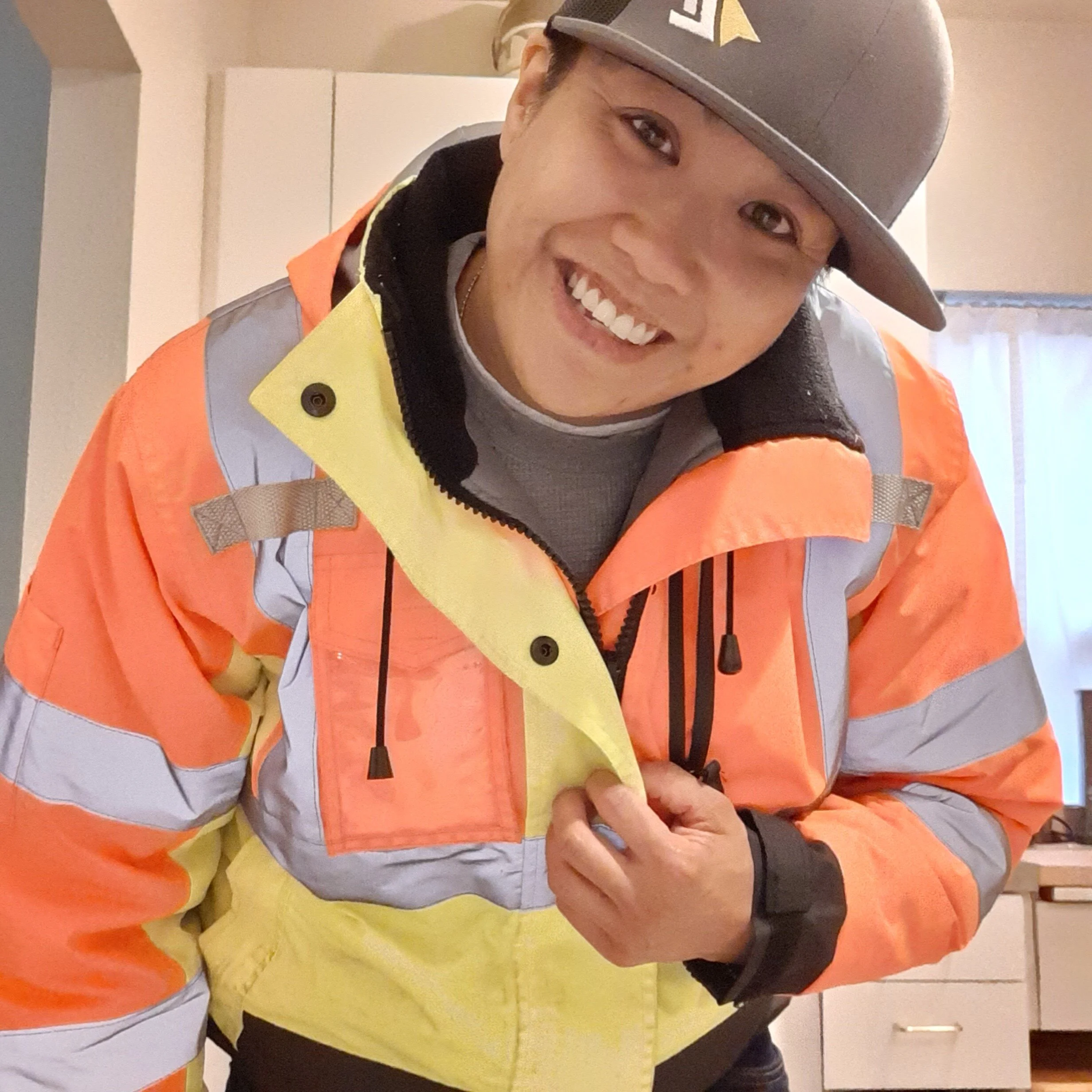Sai doesn’t like to sit still, but it’s no surprise when you learn more about her childhood. Before the age of 10, Sai lived in more foreign countries than most people travel to in their lifetime.
Her father’s military duties had uprooted the family from their home on Kadena Air Force Base in Okinawa, Japan – where Sai was born – and relocated them to Turkey, England, and Germany. Born to Filipino parents, Sai was raised with Filipino customs but was exposed to the American culture available to families living on Air Force bases. She learned to adapt to new cultures and environments, but longed to establish roots and make long-lasting friendships.
Sai was 11 years old when her father was transferred to Great Falls, Montana. With her dad often deployed and her mom self-employed as a cosmetologist, Sai and her older brother spent a lot of time with their grandmother. This taste of freedom fueled Sai’s rambunctiousness. She started to experiment with drugs and alcohol in high school, but remained enrolled and engaged – until her grandma passed away, pushing her into full-blown addiction.
“Losing my grandma in high school was a big turning point for me,” says Sai. “She raised me, and I used drugs and alcohol as my coping mechanism. A lot of my spirit went in a different direction.”
That shift in Sai’s spirit was apparent as her grades began to suffer. Even though she managed to graduate, Sai admits to undervaluing academics. She attended vocational school for two semesters before enlisting in the Air Force. During her send-off party, she tore ligaments in her ankle while playing basketball, which delayed her enlistment for six months. Sai was back on her feet after three, but had another three months before she was supposed to go to Air Force basic training in San Antonio.
She became antsy and decided to follow a friend into the Montana Conservation Corps and forgo boot camp. She served two years as a volunteer for AmeriCorps, traveling all over Montana and parts of Canada working on environmental, conservation, and trail maintenance projects. At the end of the program, she was given $5,000 toward her college education.
She recommitted herself to school and applied to the University of Montana at age 20, paying for her first year with the money she received from AmeriCorps. But that new path was disrupted during her freshman year when she found out she was pregnant. Single, living in the dorms, and expecting a child, Sai made the difficult decision to drop out.
“I was planning to go into the forestry program at the University of Montana, but ended up having my daughter Kairi and doing the stay-at-home thing,” says Sai. “At some point, I started working as a bartender and raising her as a single mom. I still continued to use drugs, mostly marijuana, and got to a point where I couldn't handle being a mom anymore. I couldn't take care of Kairi.”
In 2008, at age 24, Sai turned over custody of Kairi to her parents and moved to Washington. She worked at Moneytree as a customer service representative for three years, cashing checks to feed her addiction. Unemployed and struggling to make ends meet, Sai began selling drugs full-time. And that led her to jail.
Sai’s first stints in jail started in 2014. At first, she would go in for 30 days, then 60 days, and then longer.
“Every time I got out, I just went straight back to using and crime. It also works hand in hand,” says Sai. “This whole time I didn't have a job, I was just doing that full time. I wasn’t seeking any kind of help I didn't really think I had a problem. I didn't see that unemployment was really a bad thing because I still had money coming in.”
At the end of 2018, Sai was arrested for identity theft and forgery and sentenced to 17 months. While incarcerated at Washington Corrections Center for Women (WCCW), she was admitted into treatment for addiction. She signed up to participate in IF’s PREP (Personal Reentry Plan) course, graduated as soon as she got the opportunity, and then signed up for more IF workshops. She took and graduated from every class IF offered, and particularly loved the Writing Series.
“Creative writing was a way to get away from all of the BS that prison is,” says Sai. “It relaxed my mind and I thought of something else that wasn't related to prison.”
Sai was released in January 2019 into New Connections-Tacoma, a 90-day recovery-based housing program. She graduated from “resident” status, and was asked to stay on-site as a residential manager intern, guiding, mentoring, and supporting other women as they move through their recovery process.
Sai also joined IF’s Opioid Reentry Program, and partnered with our case management specialist and community partners to stay on track. Simultaneously, she began working with ANEW, the oldest, continuously-running pre-apprenticeship program in the nation, dedicated to improving the access and advancement of women in non-traditional career pathways.
“I learned a lot of discipline through ANEW,” says Sai. “It was an 11-week program, and I woke up at 3:30 am three days a week to catch a train and attend classes from 6:30 am to 4:30 pm.”
While the COVID-19 pandemic delayed her final classes with ANEW and he beginning of her training with the Northwest Carpenter's Institute of Washington, Sai graduated last summer and was soon hired as an installer by Lumenomics. And in late 2020, she received word that she would be hired and sponsored as a first-year apprentice into the Northwest Carpenters Union by Kiewit for Sound Transit. Ultimately, Sai wants to help build skyscrapers and large commercial projects.
On top of her professional success, Sai volunteers with Young People in Recovery, an organization that helps kids overcome substance use disorders and reach their full potential. She also spends time reconnecting with her daughter, and spent a few days in Montana last summer to celebrate Kairi’s 16th birthday.
“I was scared that she wouldn't accept me or not forgive me, and it's crazy how much she opened up with her arms wide open,” says Sai. “I'm so blessed that she turned out really good. She's got a good heart. She's just such a good person. I remember having a conversation with her in Montana in July. She told me she forgave me and hoped that I would figure it out and come back.”
Sai is figuring it out and is focused on moving forward, becoming a better parent, and remaining clean and sober. But most significantly, Sai understands that in order to move forward she has to focus on forgiving herself, which she happily reports, she is well on her way to doing.

